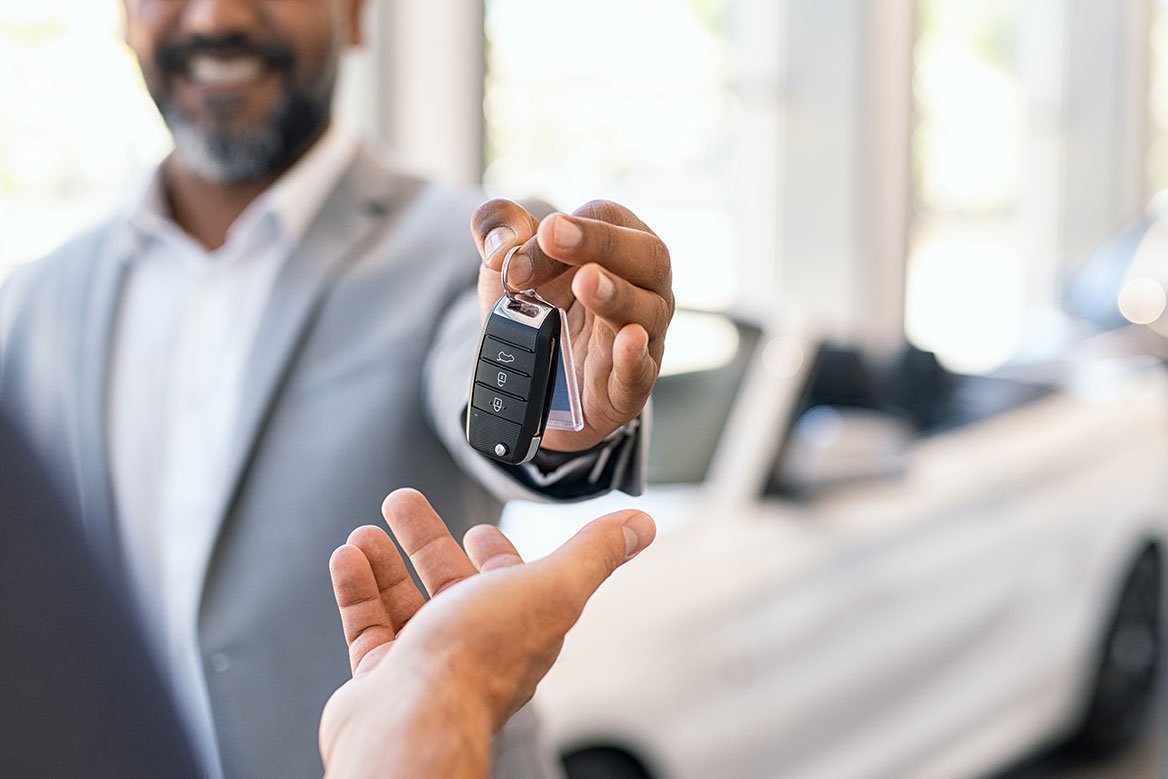The Channel Islands has some of the highest rates of motor vehicle ownership in Europe.
Owning a vehicle has historically been a symbol of personal freedom and independence. However, the cost of vehicles, both used and electric, is increasing each year. This makes financing a vehicle a much more appealing option for drivers.
Hire Purchase (HP) and Personal Contract Purchase (PCP) are the two most popular types of vehicle financing agreements. Which type is best for you depends on various factors.
With a HP agreement, you will own the vehicle after the finance term. Alternatively with PCP, you have the option to return the vehicle. But the question is which is better, ownership or usership? We look at the advantages and disadvantages of both types of vehicle finance:
Hire Purchase agreements
A HP finance agreement works by providing a loan that equals the total value of your new or used vehicle, minus the amount of your initial deposit – usually around 10%. The more deposit you pay upfront, the smaller the monthly repayments.
You pay back HP finance with monthly repayments. The interest rate is fixed, and the term of the agreement is usually one to five years. Once you’ve made all the repayments plus a final option to purchase fee, you will own your vehicle outright.
Advantages:
- You will own the vehicle outright at the end of the agreement.
- There are no mileage restrictions (which may be the case under PCP).
- You can trade in the vehicle for a newer model or something else at your discretion.
Owning a vehicle has other benefits. For example, customisation options, familiarity with your vehicle, and the ability to use it for long-distance travel. This is especially useful for getting off the islands.
Disadvantages:
- Vehicles are expensive to purchase, maintain and operate.
- Vehicle owners must bear the cost of depreciation.
- Selling the vehicle may take time or result in accepting a reduced price if needed to be disposed of quickly.
Personal Contract Purchase (PCP) agreements
PCP is an increasingly popular way to finance a new vehicle. PCP loans are a type of financial product for privately owned vehicles. This loan is ideal for those who want to purchase a new vehicle at the end of their agreement.
Under a PCP agreement, the lender guarantees a minimum sum. This sum is the value of the vehicle at the end of the finance agreement. If you want to purchase the vehicle at that time, you can. This is based on the agreed maximum annual mileage and maintenance of the vehicle during the agreement term.
The ‘Guaranteed Minimum Future Value’ can be deferred to the end of the term, which can lead to lower fixed payments than other financing products, like hire purchase.
Generally, a 10% deposit is needed for PCP, and the term can range from one to four years. The loan is also secured by the vehicle. However, be aware that excess mileage and wear and tear may incur additional costs at the end of the agreement.
With PCP, at the end of the term, the borrower has three options:
- Part-exchange it – use any equity left in your vehicle towards the deposit for a new one.
- Buy it – pay the final payment (Guaranteed Minimum Future Value) plus the Option to Purchase Fee (OTP) in one lump sum and become the legal owner.
- Hand the vehicle back, covering any expenses that have been incurred (like extra miles, damages, etc.) and be free of any other costs.
Advantages:
- You pay a fixed monthly sum which is usually less than HP repayments.
- You can upgrade to a new model at the end of the contract.
- The vehicle is not yours, so you don’t have to worry about depreciation. At the end of the agreement term, you won’t have to sell the vehicle.
Disadvantages:
- You don’t own the vehicle outright (unless you decide to buy the vehicle at the end of the agreement term).
- A maximum annual mileage allowance will apply, and additional payments may be payable if this allowance is exceeded.
- The mileage limit can’t be changed once the agreement is in force, even if your circumstances change. This is because the monthly payments are based on how lenders calculate the Guaranteed Minimum Future Value, which considers the agreed mileage.
- You will be charged for any damages or excessive wear and tear.
Both motor vehicle ownership (HP) and usership (PCP) offer unique benefits. Owning a vehicle provides a sense of independence and familiarity, while usership offers potential cost savings and flexibility.
The choice between the two depends on your individual needs, lifestyle, and budget. Ultimately, the best solution is to evaluate the costs and benefits of each option and choose the one that makes the most sense for you.





